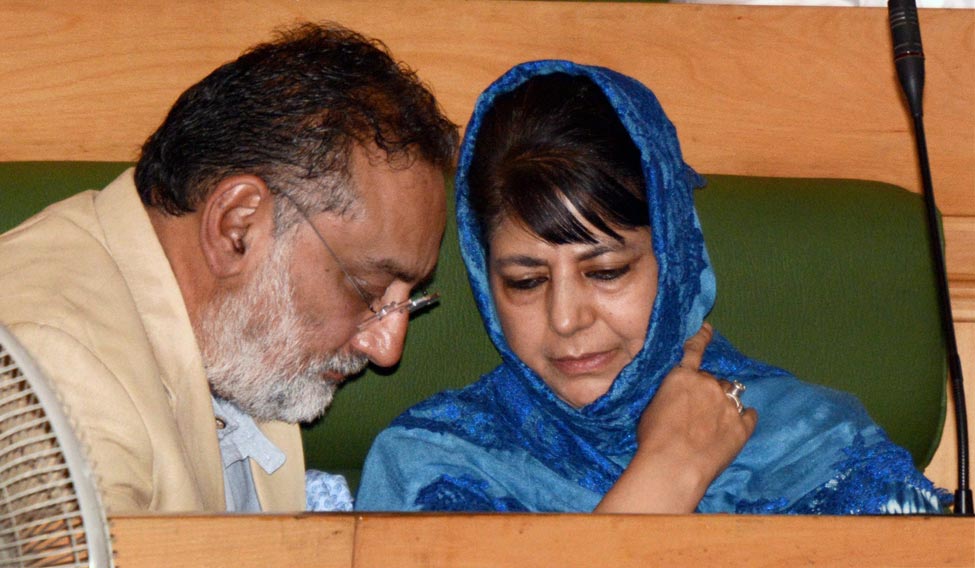Mega naval exercise kicks off
Rekha Dixit
The maritime exercise Malabar 2017, which began today, is going to be a major show of strength and unity between India, Japan and the US. The exercise was planned much in advance, but it will nonetheless be something that Beijing will take note of, in the light of the ongoing military hostility in the Doklam region on the Sikkim-Bhutan-China border.
The 10-day naval drill, taking place in the Bay of Bengal, will also feature Indian Navy's largest aircraft carrier INS Vikramaditya. Around seven other ships are expected to participate from the Indian Navy, including stealth frigates, destroyers, anti-submarine corvette, a tanker and a submarine.
The US have sent USS Nimitz. The other American ships include USS Howard, USS Shoup and USS Kidd as well as a P-8A Poseidon aircraft and a Los Angeles-class fast attack submarine. Japan Maritime Self Defense Force ships JS Izumo, JS Sazanami are the other foreign participants.
The trilateral exercise, a show of strength in the Indian Ocean region, is a counter to China's rising and unilaterally expanding footprint in the South China Sea.
The exercise includes offshore components as well an in shore, the latter being organised in Chennai.
Exercise Malabar began in 1994 with the US. Several other countries have been keen to join in, and as guests Australia and Singapore and Japan have participated in the past. The Indian Navy says that these drills sharpen operational and doctrinal expertise and enhance maritime domain awareness. Three maritime forces exercising close to its neighbourhood is not something that China can turn a blind eye to. India needs to display its strengths to counter comments from Beijing that India should learn from history, and the war of 1962.
GST gets a boost in J&K with logic
Vijaya Pushkarna
Finance Minister Arun Jaitley is not an advocate by profession for nothing; and he continues to be so whenever his current position requires him to be.
On Thursday, when he addressed a huge gathering of traders, accountants and others, to quell doubts on the discomfort that the implementation of Goods and Services Tax (GST) may cause, Jaitley shared a story as he expressed joy over the fact that Jammu and Kashmir Legislative Assembly had, that very day, passed a resolution to implement GST in the state.
Jaitley said that he had written to the J&K Chief Minister Mehbooba Mufti that the people of her state will be paying more tax if they did not move to GST. He explained to the audience in the national capital how the price would have varied between J&K and Pathankot, the Punjab town that is on the border of J&K.
Jammu and Kashmir was the only state that had not passed the GST bill though the state's finance minister was a regular at the council meetings.
“You have to choose whether to go with the separatists, who are resisting GST on the grounds that it will mean financial integration with India, and the welfare of your people,” Jaitley is known to have said to Mufti.
Whatever made Mufti throw her weight behind the resolution her government moved, she used Jaitley's argument. Not the one about choosing between the separatist pressure and welfare of her people, but the one about the higher cost of things. Kashmiris who trade everything from fabulous and expensive carpets to expensive shawls and handicraft would no doubt understand this logic more.
India and China's warm diplomacy
Pratul Sharma
It is like a game of chess, with each side trying to guess the others move while maintaining an air of civility, waiting for the other to blink first.
A day after a majority of the Chinese media reported that the time was not ripe for a formal meeting between Indian Prime Minister Narendra Modi and Chinese President Xi Jinping, both leaders sprung a surprise. Modi met Xi during the sidelines of the G20 summit in Hamburg, Germany, and warmly shook hands. The cordiality of the handshake was apparent in the picture, and it may even lead to a de-escalation of tensions at the border.
While armies of both countries are eyeball to eyeball at the Sikkim border, Modi and Xi had a word of praise for each other. The PM appreciated the momentum in BRICS under the chairmanship of President Xi and extended full cooperation and best wishes for the BRICS Xiamen Summit, later this year.
Concluding the meeting immediately after the PM's remarks, President Xi appreciated India's strong resolve against terrorism and the momentum in BRICS introduced under India's chairmanship and through the outcomes of the Goa Summit in 2016. He also appreciated India's success in economic and social development and wished India even bigger success.
Interestingly, even as controversy raged at the Sikkim border, three senior Union Ministers Prakash Javadekar, J.P. Nadda, Mahesh Sharma were in China to attend a different meeting of BRICS.
As both sides play hard at the border, some warm diplomacy can cool off tempers.




